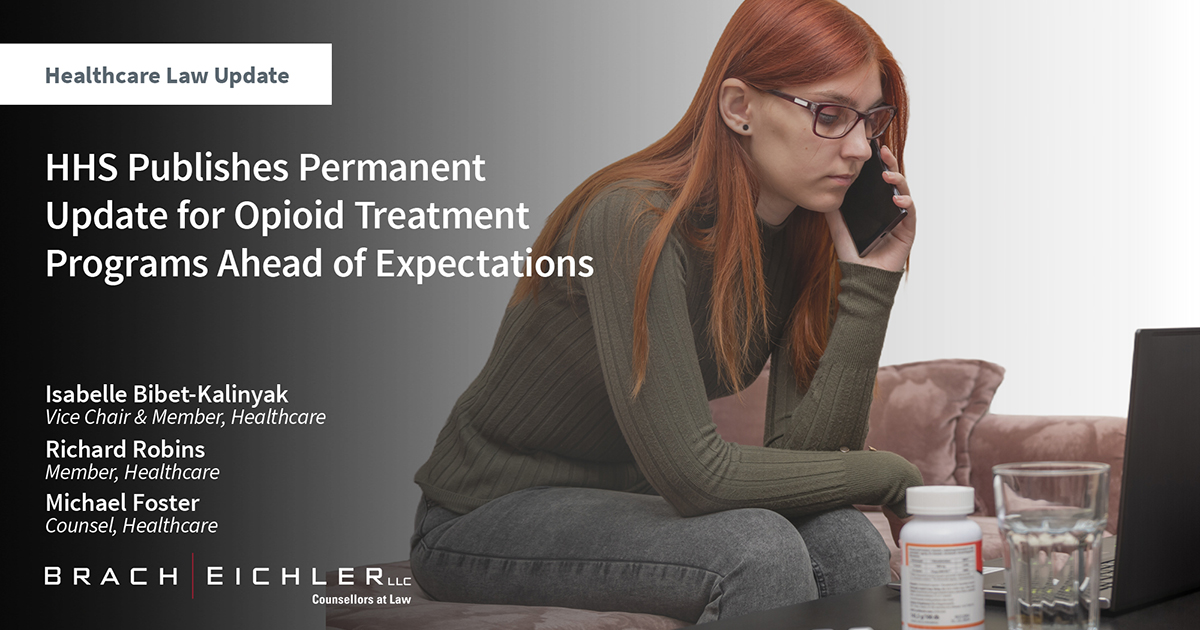HHS Publishes Permanent Update for Opioid Treatment Programs Ahead of Expectations

BACK TO INSIGHTS Articles
2/28/2024
*This is intended to provide general information, not legal advice. Please contact the authors if you need specific advice.











